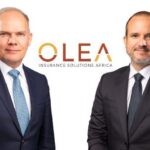Setting up a non-profit organization (NPO) in Botswana can be a rewarding way to contribute to social causes, provide community support, and engage in charitable activities. However, the process requires careful planning, understanding of the legal and regulatory frameworks, and adherence to specific requirements. In this article, we’ll walk you through the essential steps involved in establishing a non-profit organization in Botswana.
1. Understanding What a Non-Profit Organization Is
A non-profit organization is a legal entity that operates for purposes other than generating profit for its owners or members. These organizations are typically focused on charitable, educational, religious, or community-based objectives. In Botswana, non-profits are governed by the Non-Profit Organizations Act (No. 8 of 2009), which provides a legal framework for their formation, operation, and regulation.
Non-profits in Botswana can be registered with various objectives, including social welfare, environmental conservation, arts and culture, education, and healthcare, among others. These organizations rely on donations, grants, and fundraising efforts to support their activities and serve the public good.
2. Key Steps to Set Up a Non-Profit Organization in Botswana
Setting up a non-profit organization in Botswana involves several critical steps, each ensuring that the organization operates legally and effectively. Below are the detailed steps you need to follow:
2.1 Step 1: Define Your Mission and Objectives
The first step in setting up a non-profit is to clearly define its mission, vision, and objectives. Your mission statement will outline the purpose of the organization and how it intends to serve the community. Consider the following when crafting your mission and objectives:
- Specific Goals: Be clear about what your organization intends to achieve. Whether it’s offering educational programs, providing medical services, or supporting local communities, your goals must be specific and measurable.
- Target Audience: Identify the group of people or communities your organization will serve. This will help you tailor your activities and programs.
- Sustainability: Plan for how your organization will sustain itself financially, whether through fundraising, grants, or donations.
2.2 Step 2: Choose a Name for Your Non-Profit
Selecting a name for your non-profit organization is an important step, as it reflects your mission and helps distinguish you from other organizations. The name should:
- Be unique and not similar to the name of any existing registered entity in Botswana.
- Reflect the nature of the activities or goals of the organization.
- Be easy to remember and relevant to your target audience.
Once you have a name in mind, it is important to check for its availability with the Registrar of Companies to ensure it is not already in use.
2.3 Step 3: Establish a Governing Board
Every non-profit in Botswana must have a governing board or management committee. This board will be responsible for overseeing the strategic direction, governance, and financial health of the organization. The board must consist of individuals who are committed to the mission of the organization.
The composition of the board should include:
- Chairperson: The person who leads the board and ensures that the organization operates according to its mission.
- Secretary: Responsible for keeping accurate records of meetings, decisions, and correspondence.
- Treasurer: Manages financial records and ensures transparency in how funds are spent.
Additionally, the board should have members with expertise in areas such as legal matters, accounting, fundraising, and community development to support the organization’s goals.
2.4 Step 4: Draft the Organization’s Constitution
The next step in setting up your non-profit organization is to draft its constitution. This legal document sets out the rules and guidelines for the operation of the organization. The constitution must cover the following aspects:
- Purpose of the Organization: Clearly define the non-profit’s goals and activities.
- Membership: Define who can become a member, the rights and responsibilities of members, and the process for admitting and removing members.
- Board Structure and Roles: Specify how board members are elected or appointed, their terms of office, and their duties.
- Decision-Making Processes: Outline how decisions will be made, including how meetings will be conducted and how votes will be taken.
- Financial Management: Provide details on how funds will be managed, including rules on financial reporting, audits, and the use of funds.
- Dissolution: Include provisions for the dissolution of the organization, stating how any remaining assets will be distributed.
2.5 Step 5: Register the Non-Profit Organization with BURS
In Botswana, non-profit organizations are required to register with the Botswana Unified Revenue Service (BURS) for tax purposes. While most non-profits in Botswana are exempt from paying income tax, they still need to register to obtain a Tax Identification Number (TIN). This number is necessary for opening a bank account, receiving donations, and filing tax returns (if applicable).
BURS will require the following documents to process the registration:
- A copy of the organization’s constitution.
- Details of the governing board.
- Proof of identity of the founders.
- The mission statement and objectives of the non-profit.
2.6 Step 6: Apply for Registration with the Non-Profit Organizations Regulatory Authority
Once the constitution is ready, the next step is to apply for formal registration with the Non-Profit Organizations Regulatory Authority. This body is responsible for overseeing non-profit organizations and ensuring they comply with relevant laws and regulations.
To register your non-profit, you will need to submit the following documents:
- A completed application form (available from the NPO Regulatory Authority).
- The organization’s constitution.
- A copy of the TIN issued by BURS.
- A list of the governing board members and their personal details.
- Proof of physical address.
The registration process can take several weeks, so it’s important to follow up regularly to ensure your application is processed.
2.7 Step 7: Open a Bank Account
Once your non-profit is registered, you’ll need to open a business bank account in the organization’s name. The account will be used to manage the organization’s finances, including donations, grants, and other sources of income.
Most banks in Botswana will require the following to open a bank account for your non-profit:
- The organization’s registration certificate.
- A valid TIN from BURS.
- The organization’s constitution.
- A letter from the governing board authorizing the opening of the account.
2.8 Step 8: Comply with Reporting and Accountability Requirements
After setting up the non-profit organization, it is essential to maintain compliance with the regulatory requirements in Botswana. Non-profit organizations must adhere to the following:
- Annual Returns: Non-profits are required to submit annual returns to the NPO Regulatory Authority, including financial statements and an activity report.
- Financial Audits: Non-profits with significant income or assets may be required to undergo an annual financial audit. This ensures that funds are being used responsibly and in alignment with the organization’s mission.
- Transparency: Keep detailed records of all donations, expenses, and programs, as transparency is key in maintaining the trust of donors and stakeholders.
Setting up a non-profit organization in Botswana requires a clear mission, a committed board, and adherence to legal and regulatory requirements. By following the steps outlined above, you can establish a non-profit that serves the community and contributes to important social causes. Whether you’re focused on education, health, social welfare, or environmental protection, starting an NPO in Botswana can be a fulfilling way to create positive change. Always seek advice from legal professionals and financial experts to ensure compliance and maximize your impact.






